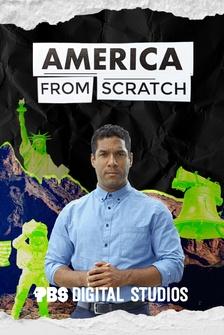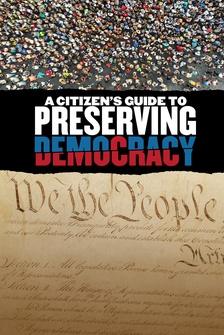Tonight, early voting is underway and all but a handful of states and Election day itself, just over 3 weeks away.
Kamala Harris and Donald Trump are ramping up their efforts to win over undecided and unlikely voters.
Democrats a heavy hitters.
Former presidents Barack Obama and Bill Clinton, and First Lady Jill Biden are out campaigning for Kamala Harris, but others in the party are sounding the alarm that her popularity.
Particularly in the critical blue wall states of Michigan, Pennsylvania, and Wisconsin may have plateaued.
That could affect races down the ballot, including control of the US Senate.
Meanwhile, former President Donald Trump's campaign taking an unconventional approach, holding rallies in solidly blue states as a way to highlight what he says are failed democratic policies.
Joining me tonight to discuss this and more are Jeff Mason, Reuters White House correspondent Salaya Mohsin, a senior White House.
Our senior Washington correspondent with Bloomberg, Ashley Parker, The Washington Post's senior national political correspondent and Jessica Taylor.
The Senate and governor's editor at Cook Political Report.
Thank you to all of you for being here.
So today I want to start with you.
Where do you think this race stands right now between Harris and Trump.
It's an absolute coin flip if you ask me.
You can see that both candidates really want the underdog position as a way to kind of make sure their voters come out.
Uh, but I think that If you see some of the demographics that each are targeting, they're going for some of the same groups you saw Obama out there talking directly to black men trying to get them to vote for Harris.
There's been a lot of reporting that some of the outreach to the black demographic black male demographic has not been fantastic from the Harris side, um, I was talked to a source in the Trump campaign today who was saying on background that Trump is feeling the campaign is feeling cautiously optimistic.
Uh, especially about black voters, so, but everyone's cautiously optimistic, so we just don't know.
We're going to come back to talking about black voters and black men in particular.
I just want to make sure everyone, do we all agree here this race is really close, right?
Right, super close, and I'm not even sure that the that the folks at the Harris campaign are cautiously optimistic.
I mean, I think they're optimistic.
I think they think she can win, but I think there's a lot of anxiety in Wilmington and, and that is fueled by the fact that they are at margin of error polling in each of the 7 swing states.
That they've had what is, I think you can objectively say a really good stretch of, of the early piece of her campaign after she became the candidate late in the game, had a great convention, had a great debate, had some momentum certainly in August and September, but it is not now turning into a polling advantage and that is anxiety producing for them and that is what has been so striking to me as sort of this existential question of she once she moved to the top of that.
She has been not quite flawless, but she has had a run of good performance and a run of good luck, right?
The combination of the two and raised over $1 billion in this crazily short term.
The flip side is that Donald Trump in many ways has said things and done things that are what people would call even who like him, his absolute worst impulses, right?
He is not being the sort of more restrained Donald Trump that allows people to do what they've done previously, which is kind of hold Nose and say, you know what, I think he's going to get into that office and become presidential, right?
And even with all of that, it is just so stunningly close, and I will say in talking to people, um, the Harris campaign in Wilmington, they, they did sort of acknowledge they said, look, from the, the very first words out of Jen O'Malley Dylan's mouth when Harris was named to the top of the ticket was this is going to be incredibly incredibly hard in this war of attrition, and that is what we're seeing play out Melly Dillon, the campaign manager, we're In this moment there's a big buzz in the strategic circles, not about Robotaxi, but about this idea that um some Democrats are very scared in this moment.
Jessica, I want to ask you, is this, some people say that's bedwetting.
Some people say it's there's real cause for concern.
What do we know about this moment?
Well, I think, you know, as Jeff was saying, even when they were sort of having the sugar high a little bit in August, I know that, you know, the super PACs and people within democratic circles were saying, you know, like this is not as rosy as you think it is.
Our internal numbers have never been this great like we are not under any, you know, false pretenses that this is going to be a cakewalk, really, and so I think, you know, even as I saw saw bigger Senate numbers and different things and then you saw her with, you know, more comfortable lead and some in Wisconsin or Michigan, I think it's sort of the the political gravity is setting in that these are just such close states, but I mean she is still again with Joe Biden we would be talking about the only path he had was Michigan, Pennsylvania, Wisconsin, and Nebraska.
Second congressional district.
She is still in play in the Sun Belt states, but I think, you know, we are just seeing that gender gap growing, Harris doing better with women, but then Trump really targeting sort of this bro culture of men, particularly young men, and you know, I, I don't, it's we might not even be talking on election night about, you know, the education gap is what's been so pronounced so much in the recent elections, but that gender gap and you know you don't see Trump doing much to appeal to women and he's just sort of doubling down on men and Is that enough to sort of again with black men, what we saw with President Obama, Latino men there, and Arizona and Nevada that are concerned about illegal immigration.
What does the data show?
Is it enough?
Is, is this the right we've talked so often about women, about soccer moms about women with cats, but is Trump right to bet on men?
I mean, if you if you're not going to do any better with women, I think it could be, it could be an interesting strategy to sort of rewrite some of this stuff because I think with, you know, certainly JD Vance's comments with Where he is on abortion, but then the interesting thing that I've also seen in the data is that even if you're, if you were voting, if you're a single issue voter on abortion, you're probably not voting for Trump.
But even if you are pro-choice, but the economy is the number one issue if you're a mom, if you're buying, if if your grocery bill is doubled, if you're concerned about, you know, about, uh, inflation and different things, they just still don't fully see Trump as, you know, as a true believer when it comes to pro-life causes, and I think that sort of has to do with his Playboy past and different things like we have seen in the that voters are blaming Democratic Senate candidates more for abortion and thinking that they would implement a national abortion ban, but they don't blame Trump for that and Harris is gaining ground on the economy in terms of the polling.
There was a while where the president, former President Trump had a real advantage on the economy with voters, but she has shifted that a little bit with a few of her economic policies on housing, on taxes, Reuters reported today that she's gonna have at least some repackaging of economic policies directed at black men next week.
So she's she's working that I thought it was interesting to watch at the Obama rally last night, how he is trying to talk about it as a character election and not just about policy.
He was ripping Trump on policy for sure, but also really tearing into him on character but the question for all of these things is, will it resonate very character attacks have never worked on Trump just because he is who he is and when you went to the polls in 2016, you sort of fundamentally knew who you were voting for or against, and that's been the challenge on character attacks at least speaking of former President Obama and what he was saying yesterday, he also stopped off at a field office and spoke directly to men, to black men, so I want to play a little bit of what he said.
I'm speaking to men directly.
Part of it makes me think that, well, you just aren't feeling the idea of having a woman as president.
And you're coming up with other alternatives and other reasons for that.
The women in our lives have been getting our backs this entire time.
When we get in trouble.
The system is not working for us.
They're the ones who are out there marching and protesting.
So, you raised this.
What do you think the risk of reward here is he's he's sort of lecturing black men, but, but clearly the Harris campaign needs them.
Yeah, I mean one part that we missed there was that he also said you're lucky that Michelle's not here right now.
He was scolding the group.
I think it shows anxiety from the Harris camp.
I think it just shows that they need this demographic and they don't have it.
Now you've covered former President Trump for a while, you know, Ashleigh, he had a response.
You won't be surprised on true social to Obama, and here's what he wrote on True Social.
He said Obama admits a total lack of enthusiasm for Kamala, especially with black men.
I think Obama will be voting for me.
Uh, yeah, we, we all know that he will not be, but why do you think first of all, kind of Barack Obama gets under his skin so much and what are you hearing about men in general, black men and also younger white men you're reporting.
So one thing that's fascinating is the Trump campaign is very clearly, as we've discussed, making a play for men, but a colleague and I did a story a couple weeks ago looking at sort of the persuadables which is this very, very small group of voters across a very, very small number of states, right?
Um, and we wanted to see uh who the campaigns viewed as the voters they needed to persuade to support them and to turn out and one thing that I thought was surprising and felt a little counterintuitive, was in many ways their un s were quite similar, so it was all mainly younger voters and that's sort of with an asterisk because they both defined it as under 50, um, so most of us here are young, right?
um, so younger voters and those younger voters skewed largely male for both campaigns, and they both campaigns over indexed for, um, voters of color, um, young men of color, so Harris knows it's not just enough to win, and she's doing quite well with women in people.
overeducated or higher levels of education, um, but they're also trying to reach them, you know, they they think that the abortion issue can even be effective, um, with younger men, especially if if they are partnered, that it's a kind of discussion they can start and then can get finished on the couch, so to speak, but I also my reporting is that privately they are very nervous.
They know that they have a problem, especially again with black men in a place like Pennsylvania.
Where you need to run up those numbers or at least not let Trump narrow the margin.
Detroit, Detroit as well, yeah, Jeff speaking of Michigan, I know you wrote a story about Kamala Harris, a campaign reaching out to Arab Americans there, Muslim Americans, that's an issue, especially in Michigan has one of the largest percentage wise populations in this country.
She's reaching out.
Are they reaching back and what does it mean?
Well, it's definitely a piece of the electorate in Michigan that she really needs and it was a weakness for Biden.
I can Anecdotally, when I would travel with Biden before he dropped out as the candidate, he would get interrupted about the war in Gaza all the time.
Vice President Harris does not.
She gets a few interruptions, but it's not nearly as bad in Michigan and elsewhere, so I think she's worked to neutralize that subject by using a a somewhat firmer tone with regard to Gaza and Israel, but specifically to the voters in Michigan that you're referring to they have.
Come around.
I mean, but they're working on it.
It's been interesting to watch Harris try to distance herself on certain issues from Biden, but on her interview with The View, she accidentally said, there's not that much of a difference, and then she decided to come back a few minutes later and recap that actually no, no, no, she realized that was a problematic.
We're so different and that's what Republicans have completely seized on.
I mean that they've had it, you know, we haven't in digital ads at least, you know, they say it's coming in and other advertising and stuff.
But I mean, that was a feeling when you saw that that you should have been prepared for this, but I mean she's at an awkward moment where she can't throw Biden under the bus either, you know, but this is where it comes down to the past few election cycles we have seen the candidateative change wins.
Obama was the candidate of change.
Trump was the change candidate from the Clinton era.
Biden was a change from uh from Trump, but now can, you know, we've seen sort of conflicting polling the latest one of the one of the latest polls did show that she does well as the change candidate, but can you really be the change candidate if you were the current vice president and that the current president is, you know, his approval ratings are low and that voters are unhappy with the direction of the country and it's it's so complicated, right, because one of the challenges in Prince for her is that she really does is a vice president.
No one pays attention to you.
That's not an indictment of her.
That's the nature of the role, right?
So she really does need to introduce herself to voters.
That's a challenge, but it's also this opportunity where she is not saddled with the incumbency and can be the change candidate.
And again in some reporting I've done, she is also grappling with although she's certainly not leaning into this in the way that Hillary Clinton did, but she's a woman, um, she's a woman of color, uh, those are both challenges.
It's often hard for the campaigns to quantify because a lot there's some people and I've talked to those voters who say I will not vote for a woman because I think they're too emotional, right?
I don't want to hand them the nuclear codes, but we can't stand up to foreign leaders.
Yes, can't I support them, but I'm worried they would get ruled by Putin.
So that comes up a little, but a lot of it is a bias sometimes that voters don't even realize.
they have and so that's a challenge, but again because it's complicated, the positive for her is that she, she looks different having a female president, having a black president, having an Indian American president would be changed.
So again, it's that push and pull.
And the other thing I would add to that in terms of the Harris campaign strategy of a new way forward they they're painting that as turning the page, not on 3.5 years of Biden, but on 78 years roughly.
of Trump being on the political stage and him coming back now as running again and being so close to potentially winning again and the anxiety that that produces and the chaos for many people anyway they want to turn the page on that and that's what she's trying to sell so cognizant of this because during the vice presidential debate we saw JD Vance constantly casting her as the incumbent saying that current Harris administration, yeah, we've been Trump did during that, you know, he didn't say until 84 minutes in, I think it was.
That Harris is Biden JD Vance was landing all the lines.
His campaign had wished Trump had landed two weeks prior.










